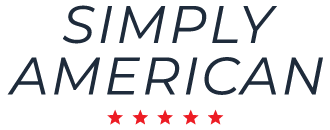HIGHLIGHTS + OTTAWA COUNTY
American Rescue Plan Act (ARPA)—Part Three
Published February 1, 2024
Written by Adams
Photography by Simply American
In May 2022, within the span of just 14 minutes, the previous Ottawa County Board of Commissioners spent $39,742,630 of the ARPA funds on lost revenue.
The resulting benefits, they claimed, would be flexibility in spending the funds as they would like, more time to spend the funds, and a lessening of reporting requirements.
Simply American published:
American Rescue Plan Act (ARPA)—Part One on December 14, 2023
American Rescue Plan Act (ARPA)—Part Two on January 5, 2024
American Rescue Plan Act
Distributed March of 2021
Slow Roll
With nearly $40 million in ARPA funds now free of time limits and reporting requirements, the previous Board continued the slow roll of finding projects.
Bucket Managers
• June 28, 2022: the previous Board approved the contracts of the Bucket Managers
• Through the summer of 2022: the Bucket Managers accepted project applications
• On or before December 31, 2024: the Bucket Managers are to complete the signing of the contracts with the County
Public Input Survey
Members of the ARPA Committee (local non-profits) identified needs within their area of expertise and ensured the projects funded would benefit all who live and work in Ottawa County. The Committee chose five categories of high-level importance and then created a survey for residents to rate those five categories.
• July 1, 2022: the ARPA Committee released the Public Input Survey
• August 4, 2022: the survey closed
• August 23, 2022: the previous Board of Commissioners accepted the information from the survey
Brakes Are Off
Within minutes of accepting the information from the public survey on August 23, 2022, the previous Board of Commissioners—with no time to process the results—approved four projects totaling $5,546,964.77. The slow roll was over.
Following are the four projects that were approved August 23, 2022:
1. Ottawa County Eviction Prevention Program
• Ottawa County 58th District Court & Good Samaritan asked for $2 million
• The program claimed to serve all Ottawa County renters and landlords
• As of September 30, 2023, this program had been paid $1 million of the funds—the other million is encumbered, meaning it is “set aside or reserved for a future expense”
2. Samaritas Affordable Living of Spring Lake
• Samaritas, an affordable-living nonprofit, in partnership with Pinnacle Construction and Chesapeake Community Partners, asked for $1.5 million
• Samaritas stated the project would create 53 housing units in the Village of Spring Lake for low-income families, couples, and seniors—with eight units reserved for those with special needs or other disabilities and eight reserved for members or descendants of the Little River Band of Ottawa Indians
• The money was contingent upon receiving a state housing tax credit
• The previous Board only asked one question before approving the money
• As of September 30, 2023, Samaritas had been paid $313,511. Since then no update has been given to the current Board, but according to a recent MLive article it seems the project will be moving forward and possibly complete by 2025. There was no mention of the eight units for those with special needs or other disabilities.
3. First Hope at 10th Street Apartments (Dwelling Place)
• Dwelling Place, a nonprofit out of Grand Rapids, asked the previous Board for $2 million of the ARPA funds
• The project was to create 46 affordable rental units and was contingent on receiving a state housing tax credit
• The previous Board never asked what rent would look like for these units and passed the motion unanimously, in minutes
• With no updates to the current Board, it appears through the County website that Dwelling Place never received the tax credit and funds are still available for the County to spend
4. Broadband Infrastructure Pre-Engineering Design and ProForma
• Ottawa County Department of Strategic Impact asked for $46,964.77 to hire GrayBar/Fujitsu
• GrayBar/Fujitsu is a logistics and data networking company
• GrayBar/Fujitsu would conduct a pre-engineering design for “middle-mile” broadband fiber lines. The design would be a documented and executable network model the County could use for the new Broadband plan to improve connectivity to underserved areas of Ottawa County
• In December 2023 the current Board solidified the contract with GrayBar/Fujitsu to bring better service to Ottawa County citizens
On August 23, 2022, within minutes of receiving the ARPA Committee’s survey, the previous Board approved four projects—taking no time to digest, investigate the projects, or think about what County residents would want
What changed? Was it the election on August 2, 2022, which suggested the dynamic of the previous Board would be shifting?
Staff Bonuses
Ottawa County received $194 per person, or $56.6 million in ARPA funds. The previous Board deemed it necessary to give County employees bonuses to deal with inflation—the bonuses came from the ARPA funds meant for all citizens.
February 22, 2022
• In an effort to retain employees, the previous Board passed a motion for benefitted County employees to receive a loyalty payment from the ARPA funds
• The loyalty payment only would be received by benefitted employees and would not be offered to non-benefitted or seasonal employees
• The payment would not exceed $2,000
• The motion passed. The total cost for the loyalty payment, which required no commitment to remain employed with the County, was anticipated to be $2.5 million. The ARPA funds amount was $392,340.
October 25, 2022
• The previous Board passed a motion for a one-time $5,000 Inflationary Impact Payment for benefitted employees and a $1,000 payment for non-benefitted employees
• This bonus again would exclude seasonal employees
• The bonus totaled $5,186,079
With businesses failing and inflation skyrocketing, the ARPA funds were supposed to help the County bounce back after the Covid-19 pandemic. Many citizens were unable to work during Covid and struggled under inflation. Yet for the staff who worked through Covid-19, the previous Ottawa County Board decided to give bonuses using the ARPA funds—not once, but twice.
Twenty-Four Projects Approved
With limited time before the eight new commissioners were to be sworn in, the previous Board was determined to spend the rest of the ARPA funds. On November 22, 2022, in a meeting that lasted four and a half hours, the previous Ottawa County Board of Commissioners spent $31.5 million on 24 different projects.
By February 16, 2023, there was an updated guide linked to the County website that listed the projects approved. Two projects were shown to be ineligible.
Projects deemed ineligible
1. Bizstream Academy Expansion asked for $700,000 to offer introductory web development sessions to approximately 7,500 Ottawa County students
2. West Michigan Works! Earn and Learn Career Fair asked for $101,874 to organize a career fair for local employers
Both projects were contingent on ARPA eligibility and were deemed ineligible by Guidehouse. Guidehouse is the organization the County hired to help check and monitor the eligibility of ARPA projects.
During 2023 the newly seated Board was updated on many of the capital projects and park projects. But a full year later questions still linger on how the projects are doing and why some haven’t reported or even spent their money.
Following are eight of the 24 projects that received funds and some of the questions that surround them:
1. Children’s Advocacy Center Staffing Expansion
• The Children’s Advocacy Center (CAC) assists victims and families with child sexual abuse cases. The CAC asked for $211,750 in ARPA funds.
• The funds would allow the CAC to hire more staff to help with their large backlog of cases due to the pandemic
• The CAC has been paid $74,250 of the approved funds
Questions
• Has the CAC hired more employees?
• Were the additional employees able to clear the backlog of cases?
• Are the extra $137,500 still needed or can the money be freed to help others?
2. GRCC Direct Care Provider Certification Programs
• Benjamin’s Hope, Harbor House Ministries, Heritage Homes, Inc., and MOKA Corp., in partnership with Grand Rapids Community College (GRCC) and Community Mental Health, asked for $350,000 in ARPA Funds
• The funds were requested to help 40 eligible direct support professionals work through a certificate program at GRCC. The certification would allow the recipients to serve adults with mental illnesses and developmental differences.
• After a year, only $15,298 has been used
Questions
• Did the 40 eligible participants make it through the program?
• Are the participants working in these facilities with their new certification?
3. Reach for Recovery Staffing Expansion
• Reach for Recovery, a nonprofit provider of addiction treatment services, received $337,500 in ARPA funding
• The funds were to be used to expand their medication assisted treatment program and provide support for 160 clients from across the region
• Reach for Recovery has used $200,000 of the funding with $137,500 remaining
Questions
• Of the 160 clients, what are the outcomes?
• Was the staff needed?
• Was the staff hired?
4. LAUP Workforce Development Initiative
• Latin Americans United for Progress (LAUP), a Holland-based nonprofit that strives to help Latinos reach their highest potential, received $799,000 in ARPA funds
• The funding would help the program tailor classes to the needs of the local workforce and area employers, as well as increase the upward mobility and economic stability of the Latino underserved and low-income residents
• A study suggested that the economic impact of the program would create more than 650 jobs and $43.6 million in aggregated earnings in all of Ottawa County
• As of September 30, 2023, only $345,000 had been used
Questions
• What was the outcome of this program?
• How many attended?
• How many jobs were created?
5. GRCC Michigan Reconnect Expansion
• Grand Rapids Community College (GRCC) received $506,493 in ARPA funding
• These funds were to allow GRCC to expand the Michigan Reconnect Program for low-income residents
• GRCC claimed 170 county residents had been identified who would benefit from the program
• The program has spent $95,408 of the approved funds, leaving $411,085 unspent
Questions
• Did this program benefit those 170 residents?
• Are those residents thriving in our community now that they have received a higher education?
• What are the plans for the excess funding?
6. Food Excess into Healthy Food Access Expansion
• Ottawa Foods and Community Action House (CAH) received $468,675 in ARPA funds
• Ottawa Foods and CAH said the funds would be used to expand Lakeshore Food Rescue (LFR) operations countywide, hire three additional staff members, buy and set up an app, and purchase two new food rescue vehicles and supplies for storing and transporting food
• Ottawa Foods now has put its program on pause, so no one knows whether there is still a need for these funds or these items
• As of September 30, 2023, only $335,789 of the funds had been paid, leaving $150,886 unused
• Ottawa Foods claims to still need $120,000 to pay for a director and to continue its seasonal work
Questions
• Did these funds purchase all the items needed?
• Since Ottawa Foods is on pause, are the three additional staff members working?
• Could the unused funds pay for the director and what’s needed to continue the seasonal work?
7. OCDPH Medicaid Reimbursements
• Ottawa County Department of Public Health received $1,507,178 in ARPA funds
• OCDPH provides services for underserved and underrepresented adults, children, and families. Customarily these services are paid for by reimbursements from the state Medicaid Cost Based (CBR) Fund
• CBR payments were two years behind due to the pandemic
• The Health Department claimed it was poised to lose $1.5 million in the 2023 and 2024 fiscal years
• For the 2023 fiscal year the Health Department used $73,983 of the $1.5 million
• The Health Department has $77,241 set aside for the 2024 fiscal year, leaving $1,355,954 untouched
Questions
• What will be done with the excess funds once CBR is caught up from the pandemic?
• Will the Health Department give back the funds so they can be used for other projects submitted to the ARPA Committee?
8. Affordable Housing Revolving Loan Fund
• Housing Next, a nonprofit out of Grand Rapids and a member of the ARPA Committee, received $10 million in ARPA funds for affordable housing
• These funds now sit with IFF, a staunchly progressive nonprofit lender out of Chicago that works to shape more equitable and vibrant communities
• No projects have been brought to the current Board after a year of having the funds
• In a recent Finance & Administration meeting, Habitat for Humanity stated they thought they would have access to some of the funds given to Housing Next. However, the funds are not compatible with Habitat due to the interest IFF is charging— a cost Habitat does not want to pass onto their low-income homeowners.
Questions
• Why are these funds sitting in another state?
• How do we make these funds more accessible for Ottawa County residents?
At least $33.8 million of the ARPA funds currently are accomplishing nothing.
So why the rush in 2022?
The 2022 Board of Commissioners seemed comfortable to slowly allocate ARPA money, in part to eliminate time constraints and reporting requirements. After the 2022 election season happened, and drastic change was imminent, the previous Board hooked another gear and sped forward like a freight train to spend the ARPA funds before January 3, 2023.
Federal Funding
American Rescue Plan Act (ARPA)
Distributed March of 2021
Location
Ottawa County, Michigan



